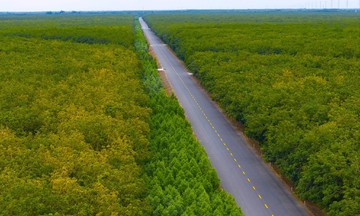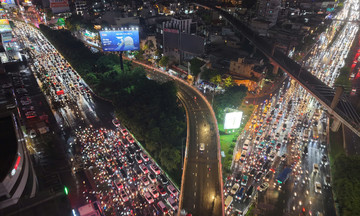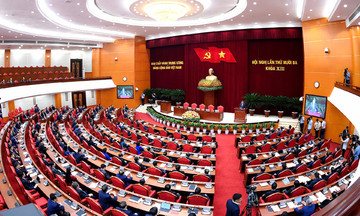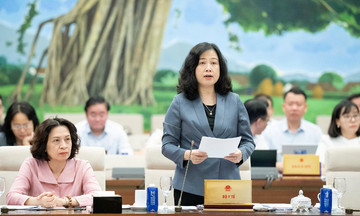63-year-old Nguyen Van Mach single-handedly manages his 1.2 hectares of Xoai Cat Chu mangoes in My Tho commune (formerly Cao Lanh district, Dong Thap province). His three adult children have chosen different career paths. Every month, he spends almost 10 days spraying pesticides, spreading fertilizer, a few days weeding, and additional time pruning branches and maintaining the orchard.
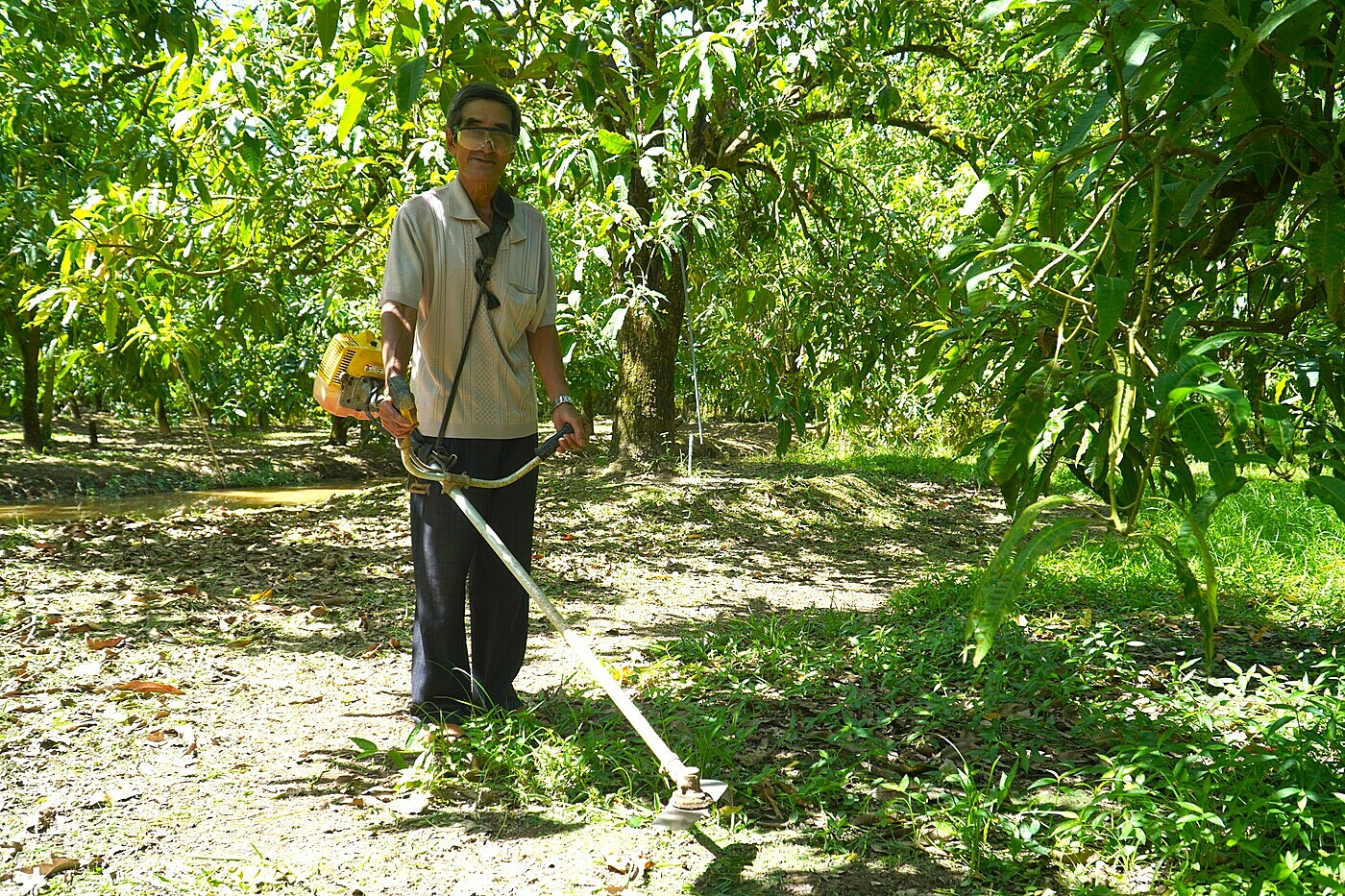 |
Nguyen Van Mach weeding his 30-year-old mango orchard. Photo: Ngoc Tai |
While a mower and automatic irrigation system assist him, bagging the fruit and harvesting requires hiring seasonal workers at 400,000 VND per day, plus meals and a celebratory drink afterward. "There's always work to be done in the orchard. In a few years, I won't be able to manage it anymore and will have to let it go, but none of my children are interested. Selling the orchard is also difficult," Mach said.
Nearby, 62-year-old Tran Phu Hau faces a similar situation, managing his 5,000 m2 orchard alone. His three children have opted for factory work and trading. "They say farming is hard work with unstable income, while working in a factory offers a regular salary, insurance, and a pension," he explained. Currently, the orchard generates about 150 million VND annually, enough for him and his wife to live on. He plans to lease the orchard in a few years when his health declines, accepting a reduced income.
According to these older farmers, seasonal labor is increasingly scarce, making it difficult to hire help for all tasks. Small, fragmented orchards and numerous canals hinder the widespread adoption of machinery. Implementing advanced technology like in other countries requires farmers to replant and renovate their entire orchards simultaneously, a costly undertaking few can afford.
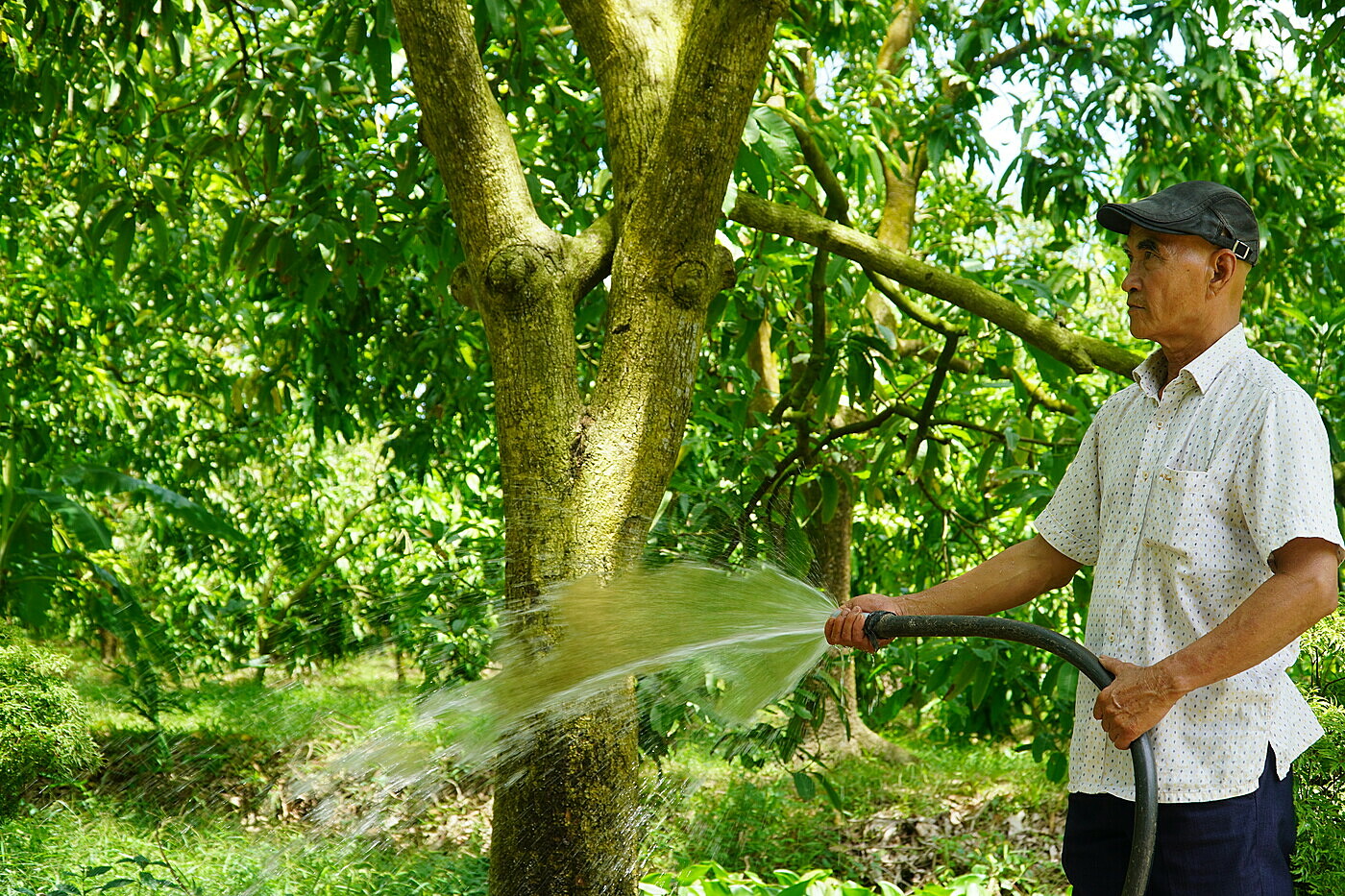 |
Tran Phu Hau plans to lease his mango orchard when he can no longer manage the farm work. Photo: Ngoc Tai |
Many Mekong Delta farmers like Mach and Hau lack successors, even though this region is Vietnam's largest agricultural hub, accounting for 50% of rice production, 65% of aquaculture, and contributing 17% to the nation's GDP.
According to the General Statistics Office, between 2011 and 2021, agricultural labor in the Mekong Delta decreased from 5.1 million to 3.6 million people, representing only 40% of the workforce. The number of young workers under 30 has sharply declined, while those over 40 make up almost 60% and continue to increase.
A survey conducted at Can Tho University and An Giang University involving nearly 450 students from farming families revealed that only 20% intend to pursue careers in agriculture, with less than 3% interested in direct production.
Experts agree that the shift from agriculture to industry and services is an inevitable trend in modernization. However, the lack of young successors poses a risk of agricultural stagnation, hindering the adoption of advanced technology and jeopardizing its role as a pillar of the economy.
Mekong Delta agriculture also faces significant challenges from climate change. Research by lecturers at the Ho Chi Minh City University of Natural Resources and Environment and the Ho Chi Minh City University of Economics and Law indicates that most farmers rely on experience and spontaneous responses, while the workforce is primarily over 40, with basic education, making it difficult for them to access modern production technology.
"For agriculture to thrive, it must rely on knowledge, science, and technology. Without a skilled younger generation, this transformation will be very slow," the study concluded.
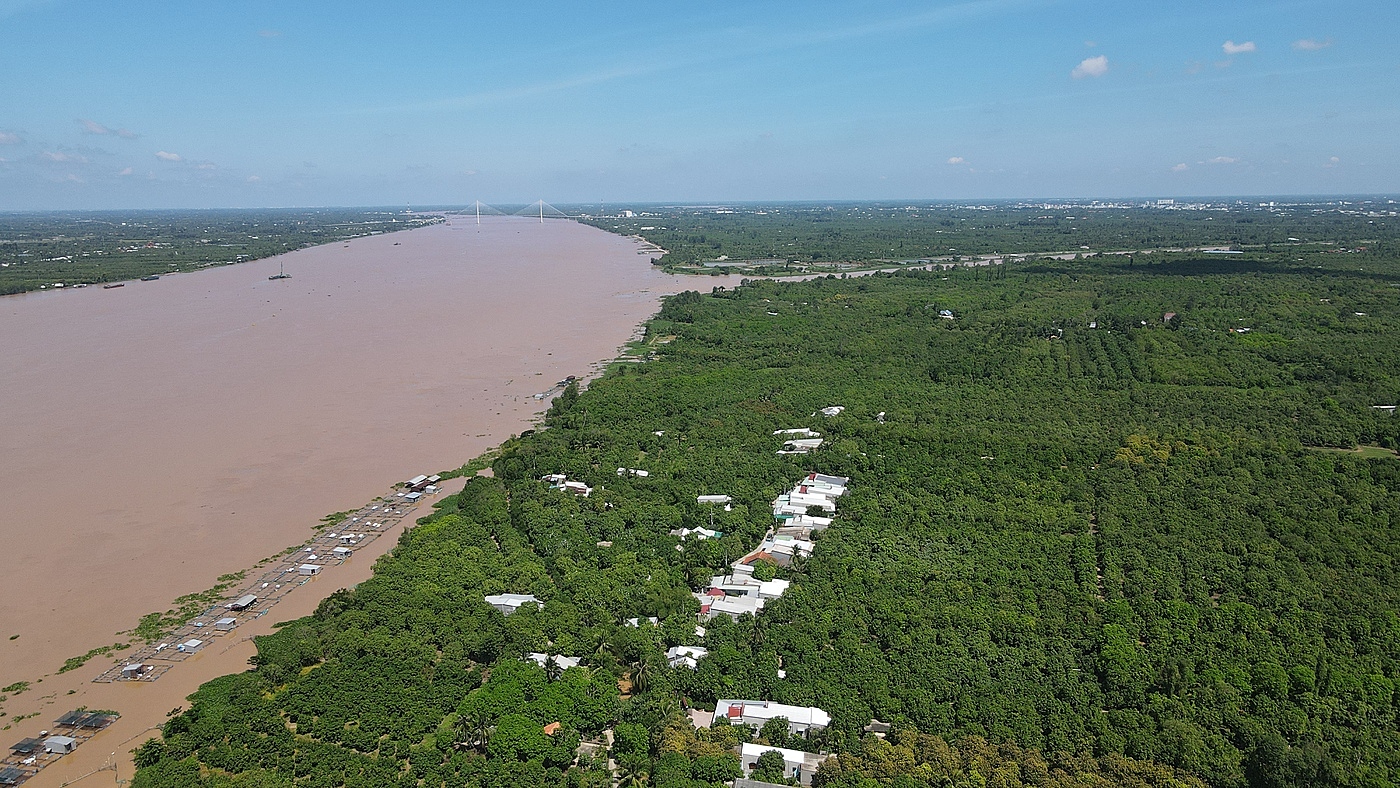 |
A mango orchard along the Tien River in Dong Thap province. Photo: Ngoc Tai |
Le Ha Luan, Director of the Dong Thap Department of Agriculture and Rural Development, acknowledges that an aging agricultural workforce is a trend not only in Vietnam but also globally, as agricultural income struggles to compete with other sectors. Long-term solutions include developing agricultural services, cooperatives, and groups that utilize machinery to replace manual labor. This allows older farmers to focus on management and supervision, rather than carrying the entire physical burden.
Dong Thap province is currently offering numerous training courses for older farmers to enhance their skills and gradually professionalize production. The government is also encouraging the formation of new-style cooperatives and agricultural enterprises to attract young workers to participate in the value chain, not just in direct farming.
However, many experts believe that to retain young people, agriculture must become an attractive profession with stable income, career advancement opportunities, and social security protections similar to those in industry and services.
Ngoc Tai





